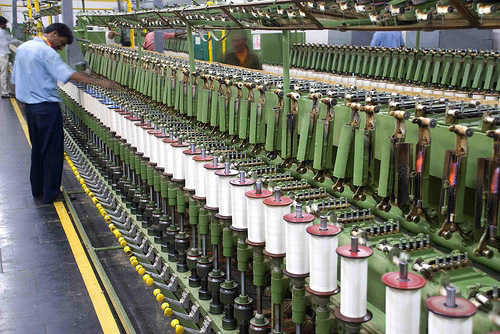Textile sector seeks multi-pronged support in Union Budget 2024-25, spinning sector in focus.
As the Indian textile industry awaits the Union Budget on July 23rd, 2024, a chorus of demands is rising from various stakeholders, particularly for the critical spinning sector. Industry leaders are urging the government to implement supportive measures to address raw material access, competitiveness, and technological advancements.
Key demands
Competitive raw material pricing: Stakeholders like RK Vij of the Textile Association of India and S K Sundararaman of Southern India Mills' Association emphasize the need for readily available cotton, polyester, and viscose at globally competitive prices. Sundararaman proposes government intervention to ensure Indian mills access high-quality cotton at 10 per cent lower prices than the international market. Additionally, Sanjay Garg of Northern India Textile Mills' Association and Jaikrishna Pathak of the Bombay Yarn Merchants Association and Exchange advocate for removing import duties on cotton to facilitate easier access to global supplies.
Boosting domestic manufacturing: Industry representatives like Vij and Garg propose increased duties on garment imports to incentivize domestic production and create a level playing field for Indian manufacturers.
Boosting cotton production and availability: Sundararaman highlights the need for readily available high-quality cotton at competitive prices. This can be achieved by policies that promote domestic cotton production and potentially removing import duties on cotton to facilitate access to global supplies.
Extension of RoDTEP scheme: Extending the Remission of Duties and Taxes on Exported Products (RoDTEP) Scheme beyond its September 2024 deadline is another key demand. This scheme offers rebates on various taxes and levies, making Indian textile exports more competitive.
GST rationalization: Streamlining the current Goods and Services Tax (GST) structure is a major concern. Vij proposes a simplified tax structure with potentially higher taxes on downstream textile products to address the inverted duty structure, where taxes on raw materials are higher than finished goods. Pathak echoes this sentiment, urging a reduction in GST on raw materials like polyester.
Technological upgradation: Rakesh Mehra of Confederation of Indian Textile Industry highlights the need for a revamped Technology Upgradation Fund Scheme (TUFS) to encourage investments in modern textile processing technologies and value addition. This would enhance the industry's capacity to produce high-quality products.
Fair trade policies: Sundararaman emphasizes the importance of fair trade policies to protect Indian interests in the global textile market. Mehra and Garg propose measures to counter cheap imports that threaten domestic manufacturers. Ideas include increasing duties on garment imports and implementing a minimum import price (MIP) on fabrics.
The collective voice of the textile industry seeks proactive measures from the government to address these critical issues. By ensuring competitive raw material access, enhancing domestic manufacturing competitiveness, and stimulating investments in technology, the Union Budget 2024-25 has the potential to significantly revitalize the spinning sector and position the Indian textile industry for future growth.

